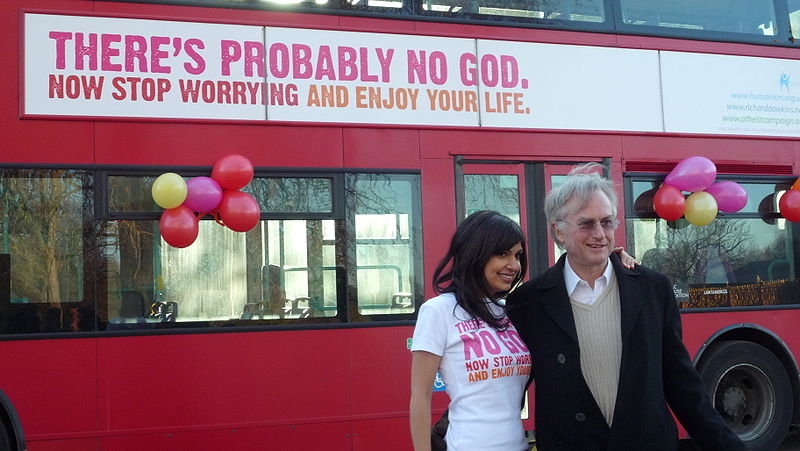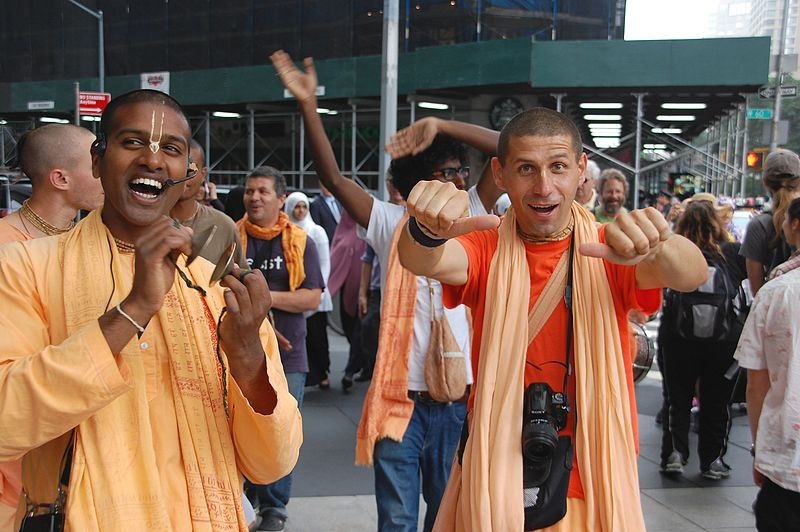“A religion that is small enough for our understanding, would not be big enough for our needs” Corrie ten Boom
Questioning when did religion originate is like questioning when did human thinking originate? So to pinpoint the exact date, before writing was developed, has always been a controversial issue. Archaeologist believe that the art of human burial, which can be traced back to thousands of years back, was a religious practice; as was the discovery of multiple statues of stone age. Once writing was invented, religious text came into existence and Pyramid Text, which hailed from Ancient Egypt, are believed to be oldest known religious text in the world. Irrespective of the recorded date of beginning of religious activity, the fact remains that man’s dependence in the supernatural force may have stemmed from his ignorance or fear, but somewhere along the way factors like faith and belief also joined in.
Since the time of ancient Egypt to the modern world, many different religion have risen and perished and the opinion as what god looks like, has also shifted a lot. From ancient multiple Egyptian gods with humanoid figure and animal heads to a single faceless and figure less supreme entity, the idea of God has also changed. According to a recent study, at present there are 4200 religions in the world; the top ten are – Christianity(31.5%), Islam(23.2%), Hinduism(15%), Buddhism(7.1%), Chinese traditional religion(5.9%), African Traditional religion(1.4%), Sikhism (0.32%), Spiritism (0.21%),, Judaism(0.20%), Baha’i (0.10%). Hinduism is the oldest surviving religion of the world and maybe the only religion which still practices polytheism.
In the last 5000 years all the major religions; like Hinduism, Buddhism, Christianity & Islam originated in Asia and gradually spread across the world. Sometimes they had a common background link, but the final faith professed was different. Many of these religions and their followers faced persecution at their initial stages but somehow managed to survive and prosper, finally overshadowing everyday life and also politics and governance of the people. Religion, which initially just told people, as how to earn the grace of the lord, slowly began to preach people as how they should lead their life. All those who followed the same faith, were brothers & those who didn’t were regarded with suspicion and distrust. The final straw was when religion joined politics and power play.
It has been said – Power attracts the worst and corrupts the best; religious power is no different. This phenomenon has manifested itself many times in history as – The Roman persecution of Christians, The Christians suppression of the pagan religions, The Crusades & Inquisition. The final straw was when, hostility was displayed against not only people following different religion, but also against the people of the same faith, who questioned the classical religious teaching. This saw persecution of many scientist like Galileo in Europe and was the beginning of the friction between Religion and Logical thinking. But this friction would be seen predominantly in Europe and the western societies, but in the east like Asia and Africa, religion would soon overshadow all other institutions including politics and governance.

As mentioned before, the persecution of many scientist by the church & religious body led to a widespread discontent across the scientific society and the intelligentsia throughout the western world. Also the previous mayhem and societal upheavals in the name of religion created a lots of sceptics in European society over the ages . Economic prosperity brought about by centuries of imperialistic history, made most of the western European countries, very rich in the 20th century. Slowly scientific advancement and materialistic prosperity in a relatively peaceful society, made the need for religion & concept of praying to god almost obsolete in western Europe, with most of the churches being closed down or being changed into Hotels and other real estate properties. The trend also started to spread to the Canada and USA. Although countries like the US, still has a lots of believers and churches, but their numbers are slowly declining as is happening in many Latin American Countries.
But Asia and Africa continues to harbour different religions and the conflicts, which rises in their name. Exploitation under the colonial masters had made most of these countries very poor. Even the infrastructure created after these countries achieved independence, were unable to meet the people’s needs, so people slowly turned to divine intervention for solutions of their problems. Also post world war 2 scenario, had created many countries which were at loggerheads, because of the faith they professed. So gradually a scenario emerged, where most affluent countries in the western world had a secular governance and citizens were atheists, but in the East (Asia) people were clearly divided by principal of adherence to classical religious beliefs and strong intolerance for others faith, which continues to keep the whole area volatile, which can be seen from the numerous incidences of violence and other problems, which appear in the News, in the daily basis, in those areas.

A question which commonly arises, is that in a world divided by economic, political and religious views; which is right ? The atheistic view or the faith of the believers. Lots of people in the west believe that it is science alone which can give humankind a rational and balanced view and can give progress to the world. On the other hand many Asians believers, strongly disapprove the scientific views and stick very close to the concepts that were described in religious epics, so much so, that they even question the concept of scientific evolution of species. Even globalisation and technological advancement has failed to change the mindset of these people. But is the truth restricted to these two extreme view points or there is some middle path, which finally leads to the correct destination. There is a very famous quote of Einstein –“ Science without religion is lame and religion without science is Blind” and maybe it is this pragmatic approach, that gives the balanced answer to many people, who cannot find the correct answer to the one of the biggest paradox of our generation, how to balance science and religion?
All those who have turned their back in religion due to it’s gory past and for that have shifted their faith in science fail to realise that, humanity’s attempt to understand science and grasp the truth of nature is still in it’s infancy. There is so much, that we do not know about, so to say that science provides answer to all our problems, would be a sign of gross arrogance. Similarly all religious hardliners should realise the difference between faith and superstition. Although religious zealots and fundamentalist have created problems in the society from ancient times, but it still cannot be ignored that one of the basic goals of all religions is to make humans more humane and charitable in nature. It is just the distorted interpretation created by religious zealots, that have caused all the problems. An example would simplify the matter -- Just because, nuclear power has been used to create weapons of mass destruction does not essentially imply that nuclear energy is totally evil and should not be used. Similarly misinterpretation of religion and it’s distorted image creating problems, does not essentially means that all religions and what they stand for are bad.
For progress of humanity, a combination of the rational of science & faith and compassion, that religion provides is needed. It has been said, that the rooms of hospitals have seen more sincere prayers than halls of the church. Sometimes, when the limitations of medical sciences (and logical thinking) makes a human tragedy insurmountable, people have taken refuge in religion for solace and peace. That is one of the strong points of religion – it provides hope, when there is none and gives an individual the strength to endure. Does God always create a miracle ? Maybe not; but the faith that some supernatural entity will take care of the situation, does provide some solace to the troubled mind. But that does not mean, that humans should stop doing, what they are capable of doing. One of the basic tenet of Hinduism (as mentioned in Hindu Epic – Bhagavat Gita) is that man should do his work, to the best of his capability & leave the rest to god.
In the 21st century when, the moral values all around us are getting eroded, a simple adherence to the basic religious values without reeling towards fanaticism, can provide a more hospitable environment for every body. A lots of people do question the practicality of the stories described in the religious texts of different religions, but fail to understand that these were just guidelines to convey a value, at a time, when the world was much more simple & telling people stories was the best way to teach them. These stories told in the religious text, does not always have to be taken literally; but only the basic principle and values espoused by the main characters, should be imbibed and adapted to our daily life. Taking those stories from epics, from religious text, without understanding their deep meaning has always created problems for mankind and disrupted the fabric of the society; something that goes totally against, the values and purpose of the religions concerned .

Of late two contrasting views surrounding religion has been emerged. As acts of religious intolerance keeps on increasing in the east, a resurgence of religion that encompasses human virtues and compassion is being seen in the west. Disillusionment with a materialistic world, where people know the price of everything, but value of nothing; is forcing lots of westerners to reconsider their life and take a closer view at the spiritualism of the east. A lots of people in the west, have embraced the ancient religion like – Hinduism & accompanying Vedic philosophy, for their spiritual enlightenment; which can be seen from extensive presence of such Hindu institutions across the western world. It is a pity, that Asia, which was once cradle of human civilization still continues to grapple with distorted version of religion, being embraced by their so called leaders, who throw the entire world into imbalance, for fulfilment of their own short sighted selfish interest. So as far as the answer to the question – is religion really needed, in 21st century is concerned; the answer will always be subjective and will vary; in context of a person’s individual struggle & experience in life; as has been said –“If you believe, no argument is needed; if you don’t, no argument is sufficient”.
Also Read: Hard to believe Strange News of 2018
History of India: Caste system of India - Journey from boon to bane